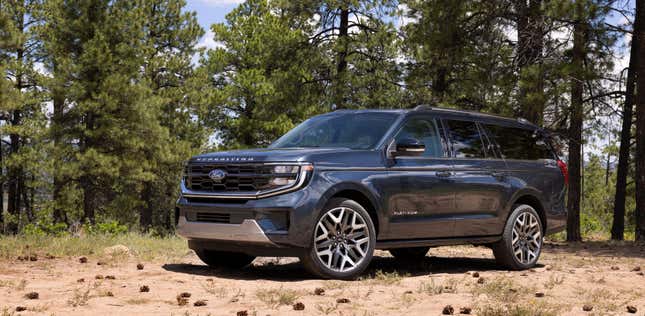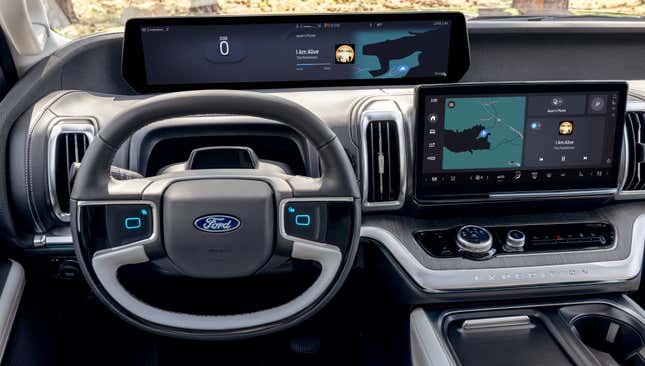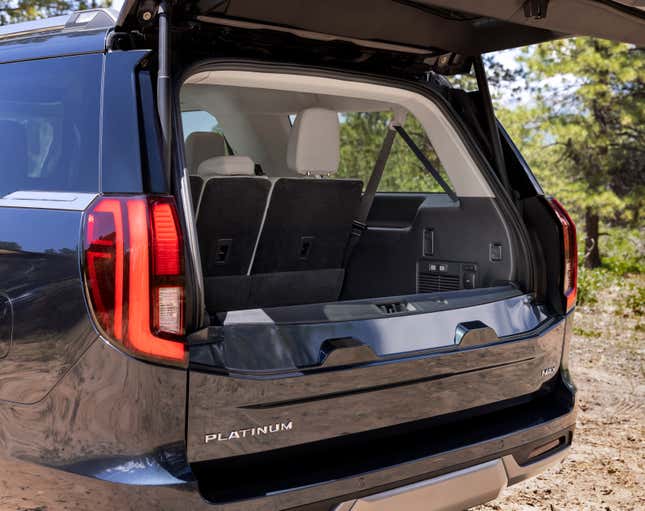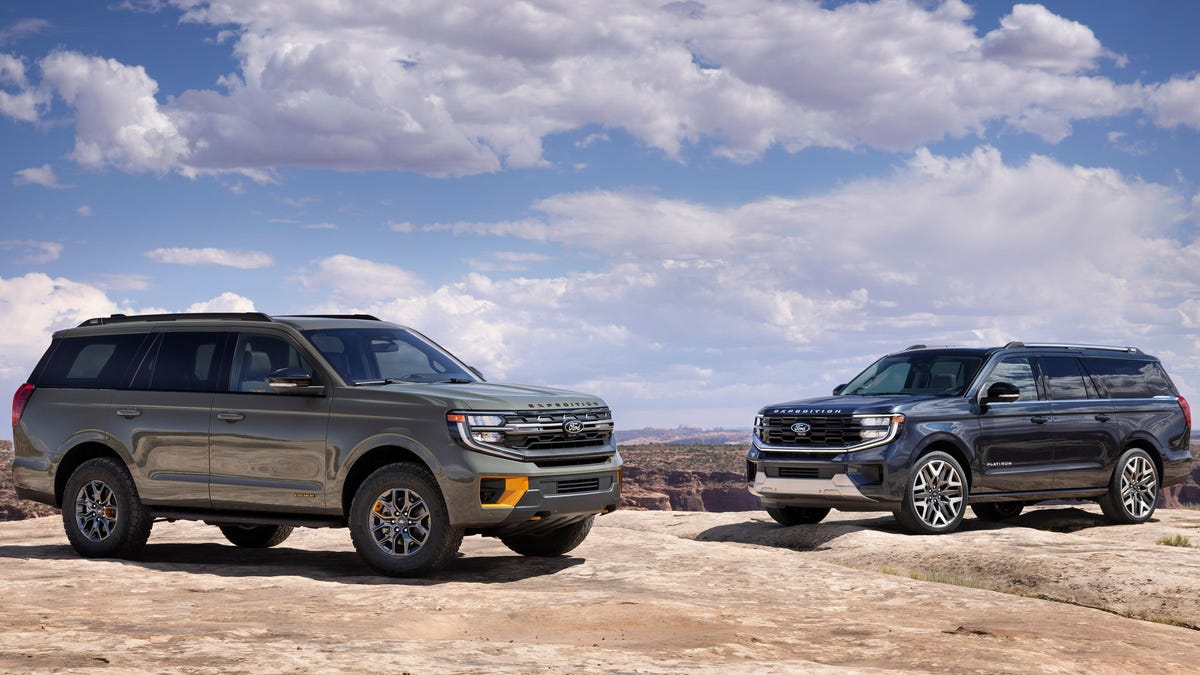Full-size body-on-frame SUVs have been a staple on North American roads for decades, but General Motors’ Chevrolet Tahoe, GMC Yukon, and Cadillac Escalade offerings are significantly more popular than Ford’s Expedition and Navigator. On the heels of the next-gen Navigator’s reveal earlier this summer, the new-for-2025 Ford Expedition has just been unveiled, and while its interior and exterior styling may make it look brand new, much of the underpinnings are suspiciously similar to the ‘24 truck.
It retains the same standard twin-turbocharged 3.5-liter Ecoboost V6 and 10-speed automatic transmission combination as last year, but the base model’s power output now matches the previous model’s mid-level specs at 400 horsepower and 480 pound-feet of torque. The optional high-output version of the V6 produces the same 440 hp and 510 lb-ft of torque as last year’s top spec, with dual exhaust being the only notable difference from the standard powerplant. Towing capacities remain mostly the same across configurations, too, with maximum towing capacity staying at 9,600 pounds when properly equipped.
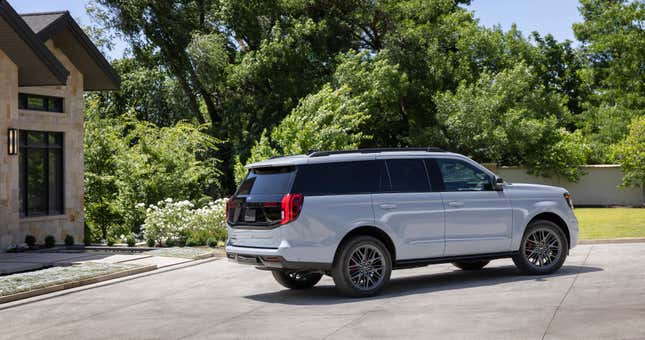
The 2025 Expedition and Expedition Max maintain basically the same footprint as the outgoing models, with neither wheelbase nor overall length changing by more than 0.2 inches. The truck’s track has been widened by about half an inch both up front and in the rear, and the curb weight remains the same, give or take about 100 pounds between different lengths and trims. Standard ground clearance has decreased by almost an inch, now down to 8.7 inches compared to last year’s 9.8 inches.
For those who want to take your whole clan of (up to) eight total occupants off the beaten path, the new-for-2025 Tremor trim is the most off-road capable Expedition yet. It has underbody shielding, 33-inch tires, a class-leading 10.6 inches of ground clearance, a locking rear differential and some new off-road tech like rock crawl mode and trail turn assist. The Tremor also gets unique styling cues including orange accents, a different grille, and dark skid plate elements in the bumpers.

All Expeditions gain the only Range Rover–style split tailgate offered in this segment, and it features available hands-free open-on-approach operation. Ford also added an electrically adjustable center console like GM’s full-size SUVs, and segment-exclusive 40/20/40 split-folding second- and third-row seats. Another cool interior feature are smartphone holders built into the front seatbacks. Cargo space is up a few cubic feet across all trims, but not significantly, and interior space has remained mostly unchanged.
The next-gen Expedition gains a 24-inch panoramic gauge display that sits low in the dashboard akin to the Lincoln Nautilus. This means the new truck gets a funky looking smaller steering wheel, and the driver must look above the steering wheel to see their gauges instead of looking through the wheel like in most cars. Unlike in the Nautilus, the Expedition’s screen doesn’t span the full width of the truck, so there is no screen in front of the passenger, which is fine. The central infotainment screen is close to the occupants like most screens, and it runs Google-based software. Ford says the software is designed to prioritize the use of voice commands with Google Assistant and Amazon Alexa built in, and it features wireless Apple CarPlay and Android Auto.
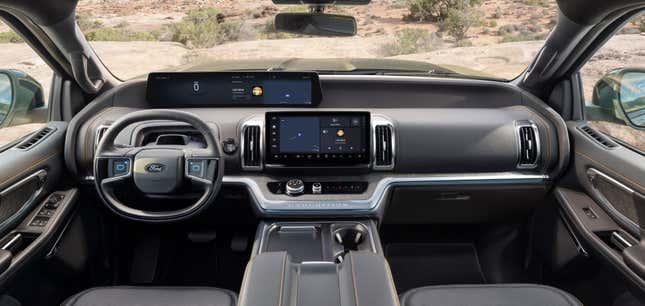
If you have a big family with big things to tow to remote locations, the Expedition might be the right truck for you. To make it even more appealing to road-trippers, Ford’s hands-free BlueCruise driver-assist system will be available on almost 90 percent of new Expedition models. Ford opens ordering for the new 2025 Expedition and Expedition Max toward the end of the month, and expects dealer arrivals in spring of next year. Pricing has yet to be announced. One thing is for certain — it will be one hell of a brawl between the new Expedition and the updated Tahoe once they reach the hands of the automotive media.
